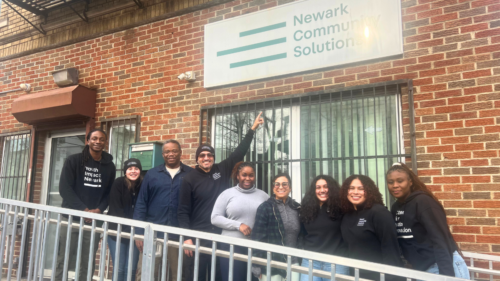Evictions are devastating, but they can often be avoided when tenants have support and guidance during the court process.
Fairness in the justice system is often talked about in terms of right or wrong, guilty or not guilty. But when we think about the range of issues the justice system touches—from criminal cases to housing and family challenges—what “fair” means becomes more complicated.
Procedural justice looks at fairness in terms of the legal process as a whole. Are people treated with respect as they navigate the justice system? Do they have the tools they need to understand their rights and know what to expect in court? Are there ways for them to make their voices heard?
In housing courts, where many people are in danger of losing their homes without getting access to an attorney, those questions are critical. Educating tenants on their rights and guiding them through the ins and outs of the legal process is essential to both promoting fairness and preventing evictions.
Residents at risk of eviction in Essex County, New Jersey, can turn to a tenant workbook created by our Newark Community Solutions team and their legal services partner Volunteer Lawyers for Justice for that guidance. The workbook walks tenants through what they’ll see and hear in landlord-tenant court, encourages them to bring documents—like rent receipts, pictures, and messages with their landlord—that can help their case, and goes over important legal terms. To reach a broad range of community members, it’s available in three languages: English, Spanish, and Portuguese.
Evictions are devastating, but they can often be avoided when tenants feel confident, prepared, and supported during the court process. Without a guaranteed right to counsel in these cases, resources that guide tenants through that process can prevent people from losing their homes simply because they missed a court appearance or misunderstood the terms of a settlement.
For tenants who aren’t able to avoid eviction altogether, the guide goes over other options, like relief that can put an eviction on hold to present new evidence or negotiate more time to move out. It also points people towards basic services they may need, from court interpreters and disability accommodations to printer access.
Preventing evictions, empowering tenants, and promoting stable housing is a community effort. Our Newark team collaborates with government and community partners across Essex County to ensure that tenants understand the court process, know what legal resources are available to them, and get access to support with rent and housing as soon as possible. Besides direct emergency relief for residents struggling to pay their rent, the team also helps tenants get access to legal counsel and longer-term services, from budgeting help and public benefits to mental health treatment.
Residents also need support with getting home repairs, applying for lease renewals and rent adjustments, and filing their own cases in housing court. Our housing resource centers in Brooklyn and Harlem help tenants navigate those issues, empowering residents to assert their rights, confidently navigate housing court, and avoid eviction.
Tenants all too often go into housing courts with little support. Providing that guidance is essential to upholding the integrity of our civil justice system—and it can reduce preventable evictions that leave individuals, families, and our communities struggling to pick up the pieces.
